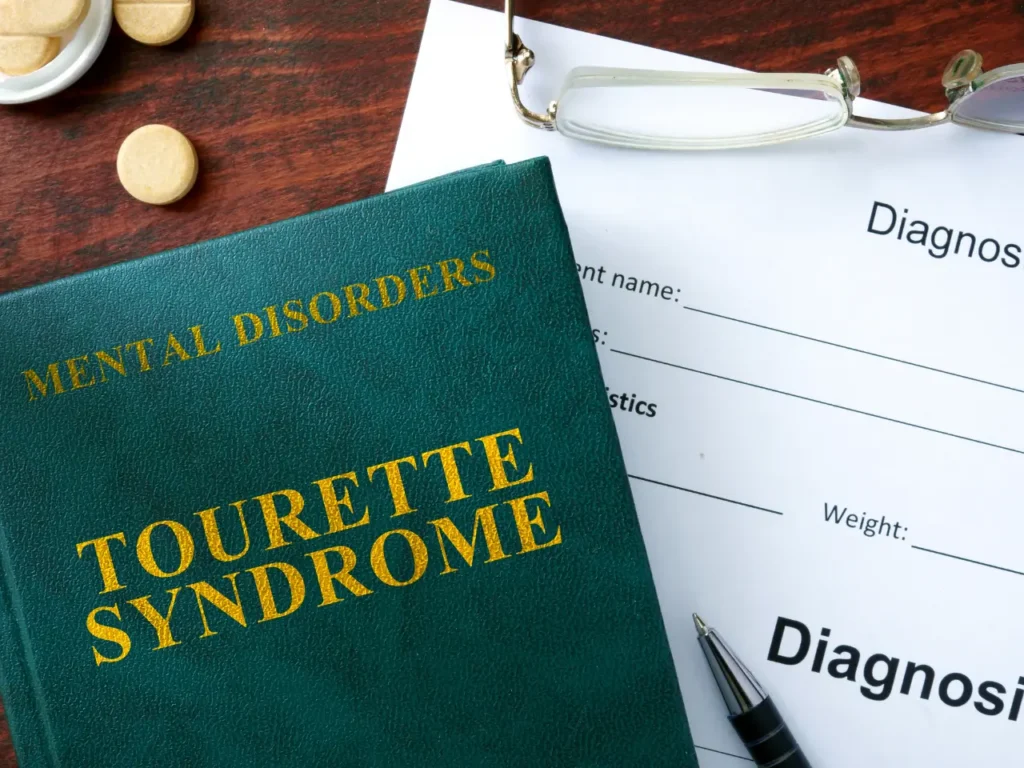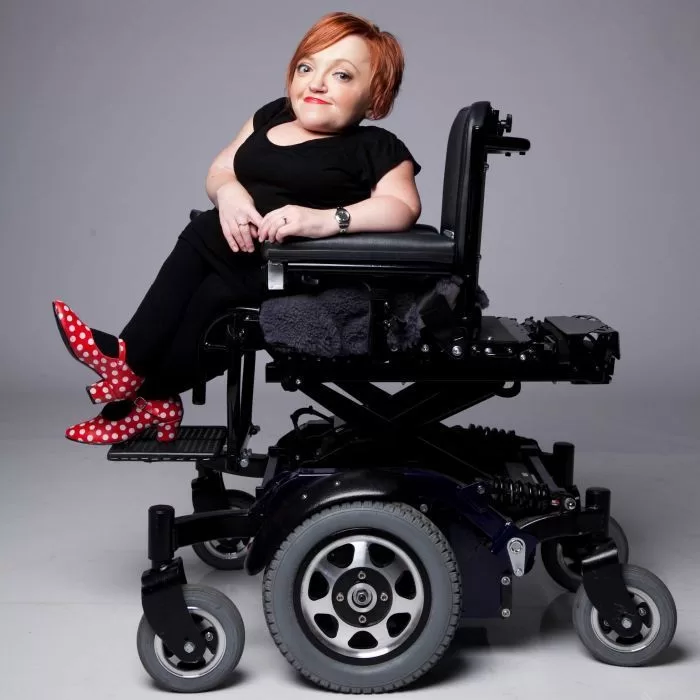Updated on May 11, 2025

Tourette Syndrome (TS) is a neurological disorder characterised by repetitive, involuntary movements and vocalisations known as tics. Although it is relatively rare, affecting about 1% of the population, it can significantly impact the quality of life for those with it.
TS is often misrepresented in popular media with a focus on swearing. Still, it encompasses a wider range of symptoms and can significantly impact a person’s daily life.
In Australia, whether TS constitutes a disability hinges on the severity of its effects and the legal framework surrounding disability rights.
This article will explore all you need to know about Tourette’s Syndrome in Australia.
Medical Perspectives on Tourette Syndrome
Tourette Syndrome is medically recognised as a neurological condition.
The Diagnostic and Statistical Manual of Mental Disorders, Fifth Edition (DSM-5), classifies TS under tic disorders, which are characterised by sudden, rapid, recurrent, non-rhythmic motor movements or vocalisations.
Symptoms and Diagnosis
- Motor Tics: These include blinking, shoulder shrugging, and head jerking.
- Vocal Tics: involve sounds like grunting, throat clearing, or, in some cases, more complex vocalisations, including words or phrases.
- Diagnosis: Diagnosis is based on the presence of multiple motor tics and at least one vocal tic for more than one year.
Apart from the physical symptoms, TS can also be accompanied by co-occurring conditions like ADHD, OCD (Obsessive-Compulsive Disorder), and anxiety.
These can further complicate daily life and require additional support.
How does Australia Define Disability?
Australia adheres to a social model of disability as defined by the Disability Discrimination Act 1992 (DDA)).
This model defines disability not by the impairment itself but by the barriers a person faces due to their impairment in a particular environment.
The DDA states that a person is considered to have a disability if they have a physical, sensory, neurological, psychiatric, intellectual, or learning impairment that significantly reduces their ability to participate in everyday activities.
In Australia, Tourette Syndrome is recognised as a disability if it significantly impacts the person’s daily life. If your symptoms hinder your ability to secure or maintain employment, you may qualify for Disability Employment Services.
The key factor in determining whether TS qualifies as a disability in Australia is the severity of the tics and their impact on a person’s life. The tics may not be considered a significant impairment if they are mild and infrequent.
However, for a person with severe TS, the constant tics can significantly hinder their ability to:
- Work: Tics can disrupt concentration, communication, and social interaction in the workplace
- Learn: Tics can make it difficult to focus in school or university settings
- Socialise: Tics can lead to social anxiety, isolation, and discrimination
- Perform daily activities: Tics can make simple tasks like writing, eating, or dressing challenging.
Social Perceptions and Stigma
Social perceptions of TS play a significant role in whether it is viewed and treated as a disability.
Public Awareness and Misconceptions
Public awareness of TS in Australia is growing, but misconceptions remain.
Common stereotypes, such as the belief that all persons with TS involuntarily swear (coprolalia), affect public perception and can contribute to stigma.
This lack of understanding, as highlighted by the Tourette Syndrome Association of Australia (TSAA), can lead to discrimination in various aspects of life, including employment, education, and social interactions.
Impact on Daily Life
People with TS often face challenges in various aspects of life, including education, employment, and social interactions.
The visibility of tics can lead to misunderstanding and discrimination, reinforcing the need for disability protections.
Support services for people with TS are often limited, particularly compared to more well-known disabilities.
Difficulties in Education and Employment: People with TS may struggle to find appropriate support in educational settings or face difficulties securing employment due to concerns about their tics.
Educational and Workplace Accommodations
The law requires both educational institutions and workplaces to provide reasonable accommodations for people with disabilities, including TS.
Education
- Individual Education Plans (IEPs): Schools may develop IEPs to support students with TS, address specific needs, and implement strategies to manage tics in the classroom.
- Teacher Training: Educating teachers about TS can reduce stigma and improve the learning environment for affected students.
Employment
- Reasonable Adjustments: Employers are required to make reasonable adjustments, such as flexible work hours or providing a quiet workspace, to accommodate employees with TS.
- Anti-Discrimination Policies: These policies protect people with TS from workplace discrimination.
- Anti-discrimination training: Training programs can equip educators, service providers, and employers with the knowledge and skills to create a more inclusive environment for people with TS. This could involve:
- Understanding the legal framework surrounding disability discrimination in Australia, as outlined in the Disability Discrimination Act 1992 (DDA)
- Recognising the diverse presentations of TS and the potential impact on a person’s life.
- Learning strategies to promote inclusion and reduce stigma in various settings.
Support Networks
- Family Support: Families play a critical role in the lives of people with TS, providing emotional and practical support.
- Community Organisations: Organisations like the Tourette Syndrome Association of Australia (TSAA) offer resources, advocacy, and community support.
The Role of the Tourette Syndrome Association of Australia (TSAA)
The TSAA is the leading organisation in Australia dedicated to supporting people with TS and their families.
Their mission, as outlined on their website, is to:
- Raise awareness: The TSAA educates the public, medical professionals, and policymakers about TS to foster greater understanding and acceptance
- Provide support: The TSAA offers resources, support groups, and educational programs to empower people with TS and their families
- Advocate for change: The TSAA advocates for policy changes that ensure people with TS have equal opportunities and access to support services.
Conclusion
Tourette Syndrome is recognised as a disability in Australia under the Disability Discrimination Act and can qualify for support under the NDIS.
While medical definitions and legal frameworks provide a basis for this recognition, social perceptions and lived experiences highlight their ongoing challenges with TS.
Increased public awareness, supportive educational and workplace environments, and robust legal protections are essential for improving the quality of life for those living with Tourette Syndrome in Australia.
Looking for reliable and trustworthy care services?
At Centre Disability Support, we offer tailored support services for individuals with disabilities throughout Australia. We offer housing options in Logan, Ipswich and Brisbane areas, where we provide independent supported living or assist individuals in finding suitable options for individualised living.
Additionally, we provide day-to-day support for individuals with mental health issues, complex behaviour and other types of disabilities. We also have support coordinators available to assist with planning, navigating NDIS plans, and offering casework support.
Whether you’re seeking support for yourself, or a loved one, or simply wish to learn more about our services, we’re here to help.
Sources:
- https://tourette.org.au/page-18181
- https://www.austlii.edu.au/au/legis/cth/consol_act/dda1992264/
- https://developingauscommunities.com.au/
- .https://ticsandtourette.org/tics-tourette/
- Tourette syndrome: clinical features, pathophysiology, and treatment – PubMed (nih.gov)
- https://eyetothefuture.com.au/legal-framework-for-discrimination-in-the-workplace/
- https://www.quantumbehaviour.com/post/ndis-faq-s
- https://www.abc.net.au/news/2023-05-04/first-responders-misjudging-tourette-syndrome-for-drug-taking/102297818
MORE FROM CENTRE DISABILITY SUPPORT
IS ANKYLOSING SPONDYLITIS A DISABILITY IN AUSTRALIA?
IS PMDD A DISABILITY IN AUSTRALIA?
IS AUTISM A DISABILITY IN AUSTRALIA?
IS OSTEOARTHRITIS A DISABILITY IN AUSTRALIA?



